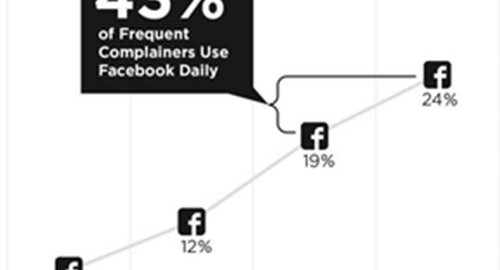INTRODUCTION:
Social Media has brought an age where anybody can tell the entire world about anything. With great power comes great responsibility that oftentimes social posters don’t really consider.
In the past 10 years, the onset of social media has brought two dynamics to consumers that have very serious implications to business.
1. Unlimited voice — An individual can tell millions of people about a good or bad experience with a brand. This experience can or cannot be based on actual experience with the brand.
2. Zero Accountability — While this voice can have a tremendous impact on a brand, there is no implication (either penalty or reward) for the individual posting. There are typically no checks and balances available to weed out unscrupulous or dishonest postings.
The combination of these two dynamics poses a serious threat to businesses today
BODY:
Most of us are part of the social media community. Yelp, Facebook, LinkedIn, Angie’s List are among the most highly utilized web properties around. For many brands, social media can be a tremendous catalyst for their business but the converse can be true as well. Many brands have been decimated by negative social feedback that has overtaken their brand and changed public perception.

The problem is that responsibility has not kept pace with technology. In all of history, never has an individual been so empowered. Today’s social consumers have a virtually limitless microphone into marketplaces. As social buyers, we have become keenly tuned to the perceptions and experiences of other consumers.
The balance of power becomes disproportionate however given that with that unlimited voice, there is zero accountability. There are no fact-checkers or authenticators in the social media world. There is no appreciation for fact or truth and there are zero consequences to balance the unlimited power. This represents a very dangerous combination for any brand.
Understanding the motives behind Haters is valuable to understand so that you can create strategies around servicing and maintaining your brand.
1. Not all Haters are created equal. Generally speaking, customers who complain via phone and email are more interested in getting their problems resolved. These are known as Off-stage complainers. It’s pretty easy to understand why. . . they are more heavily invested in the interaction given the longer form of communication. Onstage Haters tend to have a more emotionally based reaction. A quick snippy “XXX company sucks” on Twitter might be more about “look at me aren’t I funny” than it does about a wrong from your brand.
Support strategies for brands should address some of the underlying motivations behind each type of action.
2. Social Media is a Spectator Sport. Social media haters oftentimes are not seeking a response from a brand. Jay Baer, Author of Hug Your Haters did a study that showed that 52% of Social Haters did not expect a response from the company they posted negative information about, 30% were venting frustration and 13% were seeking vengeance. Social Haters are interested in getting the attention of other peers online and increasing their street cred within the social channels. The game of one-upsmanship is ever present and social haters often hope their posts go viral.
The reality is with a lot of consumers, they might (or might not) be trying to get your attention. Whatever their original motivation, many studies show that by showing you have gotten their attention and responding appropriately, you can convert these haters into good customers who are equally vocal about voicing positive brand experiences.
CONCLUSION:
Support in a social world has never been more challenging. With subtext and behavioral motivations often inconsistent with traditional support models, it is increasingly critical to stay on top of your game. Oftentimes, this can be overwhelming for companies trying to position their brand in a competitive marketplace.
Business & Finance Articles on Business 2 Community(22)








